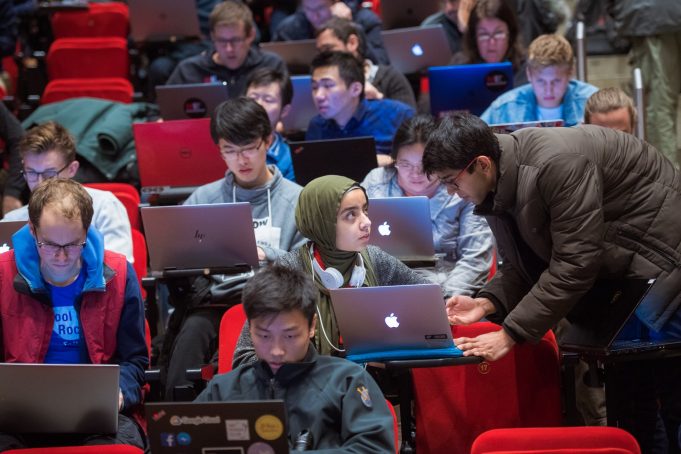Social and Ethical Responsibilities of Computing

The Social and Ethical Responsibilities of Computing (SERC) is facilitating the development of responsible “habits of mind and action” for those who create and deploy computing technologies and fostering the creation of technologies in the public interest.
Through a teaching, research and engagement framework, SERC is working to train students, encourage research to assess the broad challenges and opportunities associated with computing, and improve design, policy, implementation, and impacts.
SERC is led by associate deans Nikos Trichakis, professor of operations management, and Brian Hedden, professor of philosophy.
SERC Framework
Teaching
- Coordinated curriculum: Develop original pedagogical materials that can be incorporated into existing classes, across all levels of instruction. We have a broad mission to incorporate insights and perspectives from a range of disciplines and fields of study. New materials are developed by multidisciplinary teams with members from across computing, data sciences, humanities, arts, and social sciences — for use in each of these types of classes. We also help to support new courses, such as 24.133 (Experiential Ethics).
- Case studies: We commission and publish a series of peer-reviewed MIT Case Studies in Social and Ethical Responsibilities of Computing. The cases are brief, based on original research, and appropriate for use in undergraduate instruction across a range of existing courses and fields of study. Cases are made available for free via open-access publishing.
- Active learning projects: Original homework assignments and in-class demonstrations specially created by interdisciplinary teams, to enable instructors to embed SERC-related material into a wide variety of existing classes. These original materials are available for free via open-access publishing at MIT OpenCourseWare.
Research
- Research community: Our SERC Scholars program — open to MIT undergraduates, graduate students, and postdocs from across the Institute — provides a range of ways for students and postdocs to deepen their engagement with SERC while growing a broader community on campus.
- Research catalyst: We help to connect researchers from across MIT who share research interests in various aspects of social and ethical responsibilities of computing. We focus on connecting researchers from different disciplines, whose projects can benefit from combining methods, insights, and approaches from distinct fields of study.
- Research infrastructure: Building on recommendations from our SERC Action Group on Computing, Data, and Anti-racism, and incorporating insights and experience from the Legal, Ethical, and Equity Committee for MIT Campus Planning, we are developing resources and guidance for responsible computing, with special emphasis on projects that involve human-sourced data and information.
Broader Engagements
- Policy task forces: We convene task forces that bring together leading academic researchers, industry practitioners, and policymakers to address key questions that will shape the future. The focus is on developing concrete recommendations for technologically informed regulatory frameworks and policy-aware technological development, to guide safe, equitable, and innovative advances in various fields. Some task forces are coordinated with the new AI Policy Forum series. We coordinate with various programs, including the Technology and Policy Program, Internet Policy Research Initiative, and MIT Governance Lab.
- Public forums: SERC sponsors public forums and accessible online materials related to computing, data, and society, drawing on insights from scholars, practitioners, and civic groups.

Envisioning the Future of Computing Prize
For the third year, MIT students are invited to envision the future of computing. Tell us your ideas, aspirations, and vision for what you think the future holds. Up to $32K in prizes will be awarded! Submission deadline: February 9, 2025.